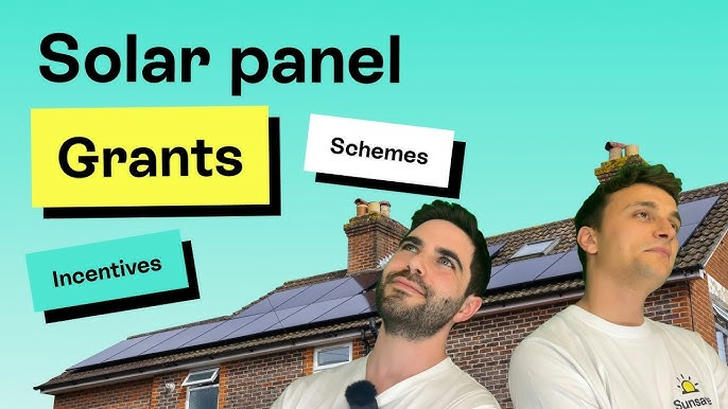Government Grants Solar Panels — Solar Panel Government Grants And Funding: a practical UK guide
Thinking about solar but confused by headlines and grant promises? This plain-spoken guide breaks down Government Grants Solar Panels / Solar Panel Government Grants And Funding in the UK today, what help actually exists, how much a typical install costs, and practical next steps so people can make a realistic plan.

The Energy Saving Trust (a reliable industry voice) explains there aren’t dedicated UK government schemes just for rooftop solar like there have been for boilers — funding for solar tends to come through broader home-upgrade or low-income programmes rather than a one-size-fits-all solar grant. If schemes are available, they’re usually targeted (social housing, low-income households, or particular public projects).
What’s actually available now (and coming)
🔸Warm Homes programmes and local grants. The UK Government’s Warm Homes plan and local Warm Homes grants offer targeted funding for energy improvements, and some local delivery bodies can include solar for eligible households (especially social housing or low-income homes). Check the official Warm Homes: Local Grant pages and local council portals for details.
🔸Public sector and community funding. Recent government moves and state-owned GB Energy funding have put money behind solar on schools, hospitals and community sites — a sign the government is actively funding public installations rather than universal homeowner grants. Projects for public buildings were announced as part of new funding pushes.
🔸Supplier and local offers. Some local authorities, housing associations or energy suppliers run special programmes or referral schemes. These are highly local, so eligibility and availability change by area.
How much does a typical solar install cost today?
Installation costs depend on system size, roof complexity and quality of panels/inverters. Recent industry figures put a typical household install in the ballpark of about £6,000–£8,000 in 2025 for a standard rooftop system — higher if adding batteries or on complicated roofs. Use these as planning numbers, not guarantees: get specific quotes.
What about getting paid for exported power?
If panels generate more electricity than the household uses, small generators can receive payments through the Smart Export Guarantee (SEG) — suppliers make offers for exported electricity under SEG rules. Tariffs and rates vary, so check which suppliers in your area offer SEG terms and how attractive those export payments are for your situation.
Who is most likely to get support?
🔸Social housing tenants and landlords: many public funding pots prioritise social housing.
🔸Low-income households: some local Warm Homes grants are income-targeted.
🔸Schools, hospitals and public bodies: recent central funding has targeted these institutions specifically.
Homeowners on average incomes may find fewer direct grants but can access finance, group-buy schemes and low-interest green loans in some areas.
Practical steps to find and secure funding or a better deal
1.Check gov.uk and your local council first. Search for “Warm Homes” or local retrofit grants and read eligibility guidance.
2.Ask your energy supplier or housing association. They sometimes run targeted offers or can point to local delivery partners.
3.Get multiple quotes and consider group buys. Schemes like Solar Together or community energy groups can cut costs through bulk procurement.
4.Compare finance options. Where grants aren’t available, look at green loans, PACE-style financing (where available), or low-interest retrofit loans offered by some councils or lenders. Read terms carefully.
5.Factor in SEG income and payback time. Use realistic production estimates for your roof and local electricity prices to model payback; include possible battery costs if you want higher self-consumption.
Pitfalls and things to watch out for
🔹Don’t assume blanket grants exist. Many adverts and articles conflate targeted schemes with universal grants — always check official sources.
🔹Quality and certification matter. Choose MCS-certified installers and equipment that meet industry standards; poor installs create safety and warranty headaches.
🔹Read finance fine print. If using a loan or lease, check total cost over term, early-repayment terms and what happens when you sell the house.
🔹Local availability changes fast. Funding windows open and close; an eligibility check today might change in months — so act on confirmed offers rather than rumours.
Bottom line
“Government Grants Solar Panels / Solar Panel Government Grants And Funding” is a useful search string, but in practice the UK approach is targeted funding, public projects support, and a mix of local grants, supplier offers and finance options for ordinary homeowners. Start with official pages (Warm Homes/local grants), talk to your council and energy supplier, get 2–3 vetted quotes, and model payback realistically. If public funding is available for your situation, great — but plan as if you’ll need to finance the system and treat any grant as a helpful bonus rather than the main plan.
